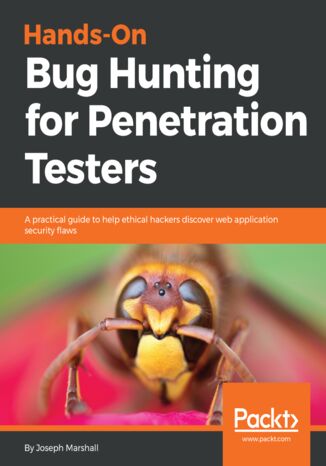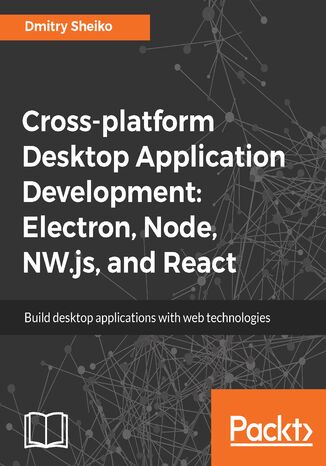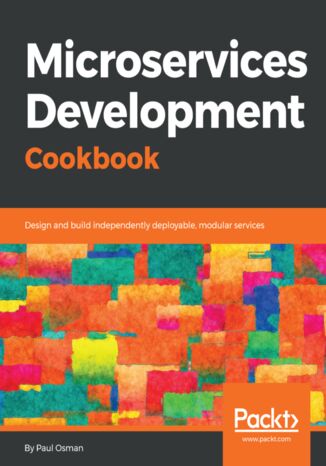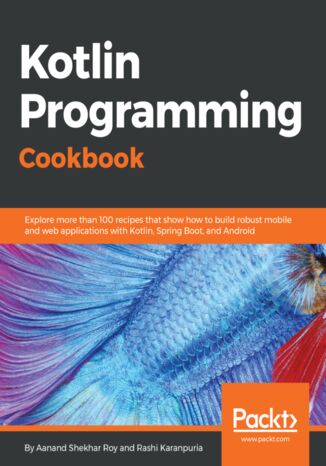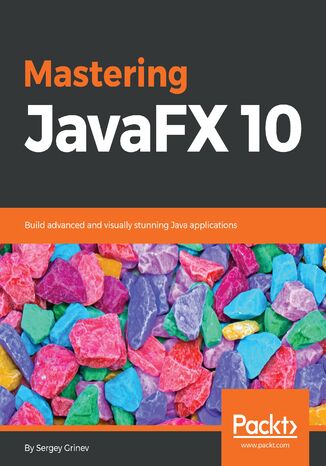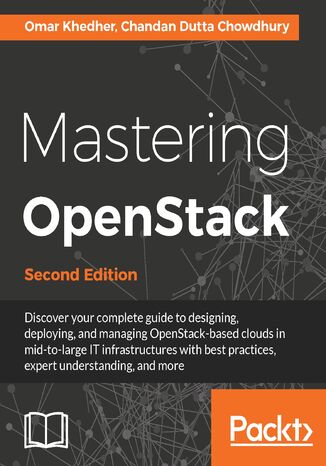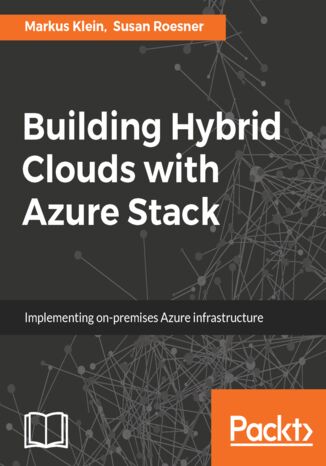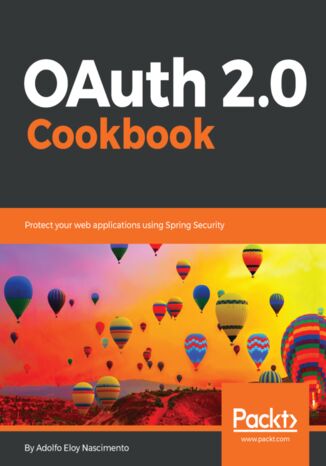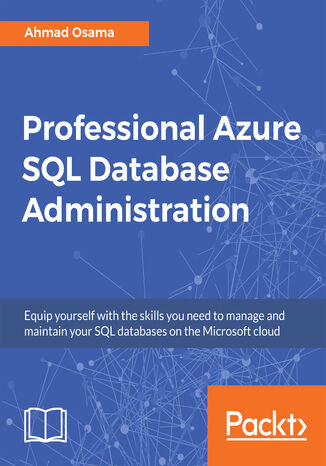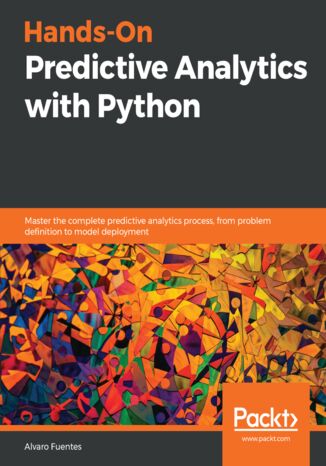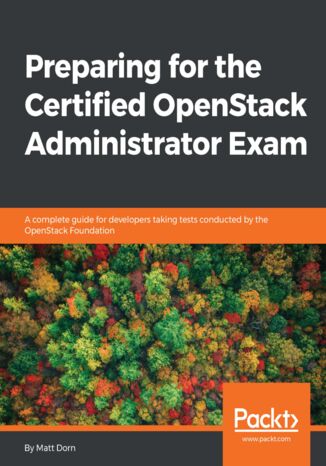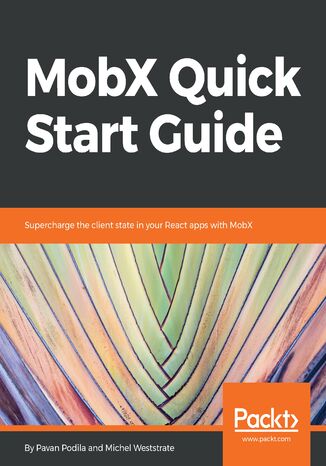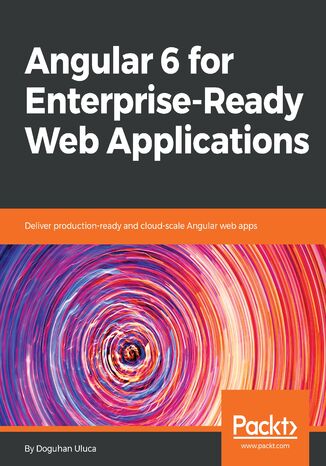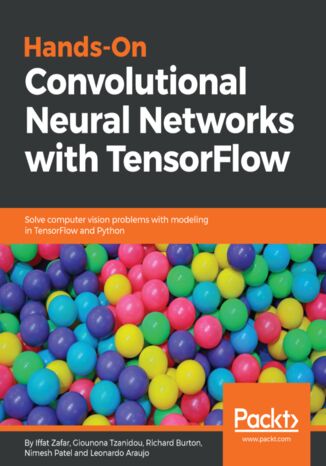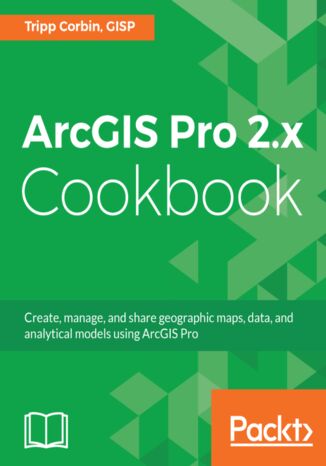Categories
Ebooks
-
Business and economy
- Bitcoin
- Businesswoman
- Coaching
- Controlling
- E-business
- Economy
- Finances
- Stocks and investments
- Personal competence
- Computer in the office
- Communication and negotiation
- Small company
- Marketing
- Motivation
- Multimedia trainings
- Real estate
- Persuasion and NLP
- Taxes
- Social policy
- Guides
- Presentations
- Leadership
- Public Relation
- Reports, analyses
- Secret
- Social Media
- Sales
- Start-up
- Your career
- Management
- Project management
- Human Resources
-
For children
-
For youth
-
Education
-
Encyclopedias, dictionaries
-
E-press
- Architektura i wnętrza
- Health and Safety
- Biznes i Ekonomia
- Home and garden
- E-business
- Ekonomia i finanse
- Esoterecism
- Finances
- Personal finance
- Business
- Photography
- Computer science
- HR & Payroll
- For women
- Computers, Excel
- Accounts
- Culture and literature
- Scientific and academic
- Environmental protection
- Opinion-forming
- Education
- Taxes
- Travelling
- Psychology
- Religion
- Agriculture
- Book and press market
- Transport and Spedition
- Healthand beauty
-
History
-
Computer science
- Office applications
- Data bases
- Bioinformatics
- IT business
- CAD/CAM
- Digital Lifestyle
- DTP
- Electronics
- Digital photography
- Computer graphics
- Games
- Hacking
- Hardware
- IT w ekonomii
- Scientific software package
- School textbooks
- Computer basics
- Programming
- Mobile programming
- Internet servers
- Computer networks
- Start-up
- Operational systems
- Artificial intelligence
- Technology for children
- Webmastering
-
Other
-
Foreign languages
-
Culture and art
-
School reading books
-
Literature
- Antology
- Ballade
- Biographies and autobiographies
- For adults
- Dramas
- Diaries, memoirs, letters
- Epic, epopee
- Essay
- Fantasy and science fiction
- Feuilletons
- Work of fiction
- Humour and satire
- Other
- Classical
- Crime fiction
- Non-fiction
- Fiction
- Mity i legendy
- Nobelists
- Novellas
- Moral
- Okultyzm i magia
- Short stories
- Memoirs
- Travelling
- Narrative poetry
- Poetry
- Politics
- Popular science
- Novel
- Historical novel
- Prose
- Adventure
- Journalism, publicism
- Reportage novels
- Romans i literatura obyczajowa
- Sensational
- Thriller, Horror
- Interviews and memoirs
-
Natural sciences
-
Social sciences
-
School textbooks
-
Popular science and academic
- Archeology
- Bibliotekoznawstwo
- Cinema studies
- Philology
- Polish philology
- Philosophy
- Finanse i bankowość
- Geography
- Economy
- Trade. World economy
- History and archeology
- History of art and architecture
- Cultural studies
- Linguistics
- Literary studies
- Logistics
- Maths
- Medicine
- Humanities
- Pedagogy
- Educational aids
- Popular science
- Other
- Psychology
- Sociology
- Theatre studies
- Theology
- Economic theories and teachings
- Transport i spedycja
- Physical education
- Zarządzanie i marketing
-
Guides
-
Game guides
-
Professional and specialist guides
-
Law
- Health and Safety
- History
- Road Code. Driving license
- Law studies
- Healthcare
- General. Compendium of knowledge
- Academic textbooks
- Other
- Construction and local law
- Civil law
- Financial law
- Economic law
- Economic and trade law
- Criminal law
- Criminal law. Criminal offenses. Criminology
- International law
- International law
- Health care law
- Educational law
- Tax law
- Labor and social security law
- Public, constitutional and administrative law
- Family and Guardianship Code
- agricultural law
- Social law, labour law
- European Union law
- Industry
- Agricultural and environmental
- Dictionaries and encyclopedia
- Public procurement
- Management
-
Tourist guides and travel
- Africa
- Albums
- Southern America
- North and Central America
- Australia, New Zealand, Oceania
- Austria
- Asia
- Balkans
- Middle East
- Bulgary
- China
- Croatia
- The Czech Republic
- Denmark
- Egipt
- Estonia
- Europe
- France
- Mountains
- Greece
- Spain
- Holand
- Iceland
- Lithuania
- Latvia
- Mapy, Plany miast, Atlasy
- Mini travel guides
- Germany
- Norway
- Active travelling
- Poland
- Portugal
- Other
- Przewodniki po hotelach i restauracjach
- Russia
- Romania
- Slovakia
- Slovenia
- Switzerland
- Sweden
- World
- Turkey
- Ukraine
- Hungary
- Great Britain
- Italy
-
Psychology
- Philosophy of life
- Kompetencje psychospołeczne
- Interpersonal communication
- Mindfulness
- General
- Persuasion and NLP
- Academic psychology
- Psychology of soul and mind
- Work psychology
- Relacje i związki
- Parenting and children psychology
- Problem solving
- Intellectual growth
- Secret
- Sexapeal
- Seduction
- Appearance and image
- Philosophy of life
-
Religion
-
Sport, fitness, diets
-
Technology and mechanics
Audiobooks
-
Business and economy
- Bitcoin
- Businesswoman
- Coaching
- Controlling
- E-business
- Economy
- Finances
- Stocks and investments
- Personal competence
- Communication and negotiation
- Small company
- Marketing
- Motivation
- Real estate
- Persuasion and NLP
- Taxes
- Social policy
- Guides
- Presentations
- Leadership
- Public Relation
- Secret
- Social Media
- Sales
- Start-up
- Your career
- Management
- Project management
- Human Resources
-
For children
-
For youth
-
Education
-
Encyclopedias, dictionaries
-
E-press
-
History
-
Computer science
-
Other
-
Foreign languages
-
Culture and art
-
School reading books
-
Literature
- Antology
- Ballade
- Biographies and autobiographies
- For adults
- Dramas
- Diaries, memoirs, letters
- Epic, epopee
- Essay
- Fantasy and science fiction
- Feuilletons
- Work of fiction
- Humour and satire
- Other
- Classical
- Crime fiction
- Non-fiction
- Fiction
- Mity i legendy
- Nobelists
- Novellas
- Moral
- Okultyzm i magia
- Short stories
- Memoirs
- Travelling
- Poetry
- Politics
- Popular science
- Novel
- Historical novel
- Prose
- Adventure
- Journalism, publicism
- Reportage novels
- Romans i literatura obyczajowa
- Sensational
- Thriller, Horror
- Interviews and memoirs
-
Natural sciences
-
Social sciences
-
Popular science and academic
-
Guides
-
Professional and specialist guides
-
Law
-
Tourist guides and travel
-
Psychology
- Philosophy of life
- Interpersonal communication
- Mindfulness
- General
- Persuasion and NLP
- Academic psychology
- Psychology of soul and mind
- Work psychology
- Relacje i związki
- Parenting and children psychology
- Problem solving
- Intellectual growth
- Secret
- Sexapeal
- Seduction
- Appearance and image
- Philosophy of life
-
Religion
-
Sport, fitness, diets
-
Technology and mechanics
Videocourses
-
Data bases
-
Big Data
-
Biznes, ekonomia i marketing
-
Cybersecurity
-
Data Science
-
DevOps
-
For children
-
Electronics
-
Graphics/Video/CAX
-
Games
-
Microsoft Office
-
Development tools
-
Programming
-
Personal growth
-
Computer networks
-
Operational systems
-
Software testing
-
Mobile devices
-
UX/UI
-
Web development
-
Management
Podcasts
Bug bounties have quickly become a critical part of the security economy. This book shows you how technical professionals with an interest in security can begin productively—and profitably—participating in bug bounty programs.You will learn about SQli, NoSQLi, XSS, XXE, and other forms of code injection. You’ll see how to create CSRF PoC HTML snippets, how to discover hidden content (and what to do with it once it’s found), and how to create the tools for automated pentesting work?ows.Then, you’ll format all of this information within the context of a bug report that will have the greatest chance of earning you cash. With detailed walkthroughs that cover discovering, testing, and reporting vulnerabilities, this book is ideal for aspiring security professionals. You should come away from this work with the skills you need to not only find the bugs you're looking for, but also the best bug bounty programs to participate in, and how to grow your skills moving forward in freelance security research.
Building and maintaining cross-platform desktop applications with native languages isn’t a trivial task. Since it’s hard to simulate on a foreign platform, packaging and distribution can be quite platform-specific and testing cross-platform apps is pretty complicated.In such scenarios, web technologies such as HTML5 and JavaScript can be your lifesaver. HTML5 desktop applications can be distributed across different platforms (Window, MacOS, and Linux) without any modifications to the code. The book starts with a walk-through on building a simple file explorer from scratch powered by NW.JS. So you will practice the most exciting features of bleeding edge CSS and JavaScript. In addition you will learn to use the desktop environment integration API, source code protection, packaging, and auto-updating with NW.JS.As the second application you will build a chat-system example implemented with Electron and React. While developing the chat app, you will get Photonkit. Next, you will create a screen capturer with NW.JS, React, and Redux. Finally, you will examine an RSS-reader built with TypeScript, React, Redux, and Electron. Generic UI components will be reused from the React MDL library. By the end of the book, you will have built four desktop apps. You will have covered everything from planning, designing, and development to the enhancement, testing, and delivery of these apps.
Microservices Development Cookbook. Design and build independently deployable modular services
Microservices have become a popular choice for building distributed systems that power modern web and mobile apps. They enable you to deploy apps as a suite of independently deployable, modular, and scalable services. With over 70 practical, self-contained tutorials, the book examines common pain points during development and best practices for creating distributed microservices. Each recipe addresses a specific problem and offers a proven, best-practice solution with insights into how it works, so you can copy the code and configuration files and modify them for your own needs.You’ll start by understanding microservice architecture. Next, you'll learn to transition from a traditional monolithic app to a suite of small services that interact to ensure your client apps are running seamlessly. The book will then guide you through the patterns you can use to organize services, so you can optimize request handling and processing. In addition this, you’ll understand how to handle service-to-service interactions. As you progress, you’ll get up to speed with securing microservices and adding monitoring to debug problems. Finally, you’ll cover fault-tolerance and reliability patterns that help you use microservices to isolate failures in your apps.By the end of this book, you’ll have the skills you need to work with a team to break a large, monolithic codebase into independently deployable and scalable microservices.
Aanand Shekhar Roy, Rashi Karanpuria
The Android team has announced first-class support for Kotlin 1.1. This acts as an added boost to the language and more and more developers are now looking at Kotlin for their application development. This recipe-based book will be your guide to learning the Kotlin programming language. The recipes in this book build from simple language concepts to more complex applications of the language. After the fundamentals of the language, you will learn how to apply the object-oriented programming features of Kotlin 1.1. Programming with Lambdas will show you how to use the functional power of Kotlin. This book has recipes that will get you started with Android programming with Kotlin 1.1, providing quick solutions to common problems encountered during Android app development. You will also be taken through recipes that will teach you microservice and concurrent programming with Kotlin. Going forward, you will learn to test and secure your applications with Kotlin. Finally, this book supplies recipes that will help you migrate your Java code to Kotlin and will help ensure that it's interoperable with Java.
Mastering JavaFX 10. Build advanced and visually stunning Java applications
: JavaFX 10 is used to create media-rich client applications. This book takes you on a journey to use JavaFX 10 to build applications that display information in a high-performance, modern user interface featuring audio, video, graphics, and animation.Mastering JavaFX 10 begins by introducing you to the JavaFX API. You will understand the steps involved in setting up your development environment and build the necessary dependencies. This is followed by exploring how to work with the assets, modules, and APIs of JavaFX. This book is filled with practical examples to guide you through the major features of JavaFX 10. In addition to this, you will acquire a practical understanding of JavaFX custom animations, merging different application layers smoothly, and creating a user-friendly GUI with ease. By the end of the book, you will be able to create a complete, feature-rich Java graphical application using JavaFX.
In this second edition, you will get to grips with the latest features of OpenStack. Starting with an overview of the OpenStack architecture, you'll see how to adopt the DevOps style of automation while deploying and operating in an OpenStack environment. We'll show you how to create your own OpenStack private cloud. Then you'll learn about various hypervisors and container technology supported by OpenStack. You'll get an understanding about the segregation of compute nodes based on reliability and availability needs. We'll cover various storage types in OpenStack and advanced networking aspects such as SDN and NFV.Next, you'll understand the OpenStack infrastructure from a cloud user point of view. Moving on, you'll develop troubleshooting skills, and get a comprehensive understanding of services such as high availability and failover in OpenStack. Finally, you will gain experience of running a centralized logging server and monitoring OpenStack services. The book will show you how to carry out performance tuning based on OpenStack service logs. You will be able to master OpenStack benchmarking and performance tuning. By the end of the book, you'll be ready to take steps to deploy and manage an OpenStack cloud with the latest open source technologies.
Building Hybrid Clouds with Azure Stack. Implementing on-premises Azure infrastructure
Azure Stack is all about creating fewer gaps between on-premise and public cloud application deployment. Azure Stack is the logical progression of Microsoft Cloud Services to create a true hybrid cloud-ready application.This book provides an introduction to Azure Stack and the cloud-first approach. Starting with an introduction to the architecture of Azure Stack, the book will help you plan and deploy your Azure Stack. Next, you will learn about the network and storage options in Azure Stack and you'll create your own private cloud solution. Finally, you will understand how to integrate public cloud using the third-party resource provider. After reading the book, you will have a good understanding of the end-to-end process of designing, offering, and supporting cloud solutions for enterprises or service providers.
OAuth 2.0 Cookbook. Protect your web applications using Spring Security
OAuth 2.0 is a standard protocol for authorization and focuses on client development simplicity while providing specific authorization flows for web applications, desktop applications, mobile phones, and so on. This book also provides useful recipes for solving real-life problems using Spring Security and creating Android applications.The book starts by presenting you how to interact with some public OAuth 2.0 protected APIs such as Facebook, LinkedIn and Google. You will also be able to implement your own OAuth 2.0 provider with Spring Security OAuth2. Next, the book will cover practical scenarios regarding some important OAuth 2.0 profiles such as Dynamic Client Registration, Token Introspection and how to revoke issued access tokens. You will then be introduced to the usage of JWT, OpenID Connect, and how to safely implement native mobile OAuth 2.0 Clients.By the end of this book, you will be able to ensure that both the server and client are protected against common vulnerabilities.
As the cloud version of SQL Server, Azure SQL Database differs in key ways when it comes to management, maintenance, and administration. It’s important to know how to administer SQL Database to fully benefit from all of the features and functionality that it provides. This book addresses important aspects of an Azure SQL Database instance such as migration, backup restorations, pricing policies, security, scalability, monitoring, performance optimization, high availability, and disaster recovery. It is a complete guide for database administrators, and ideal for those who are planning to migrate from on premise SQL Server database to an Azure SQL Server database.
Are you a mobile developer or web developer who wants to create immersive and cool Augmented Reality apps with the latest Google ARCore platform? If so, this book will help you jump right into developing with ARCore and will help you create a step by step AR app easily. This book will teach you how to implement the core features of ARCore starting from the fundamentals of 3D rendering to more advanced concepts such as lighting, shaders, Machine Learning, and others. We’ll begin with the basics of building a project on three platforms: web, Android, and Unity. Next, we’ll go through the ARCore concepts of motion tracking, environmental understanding, and light estimation. For each core concept, you’ll work on a practical project to use and extend the ARCore feature, from learning the basics of 3D rendering and lighting to exploring more advanced concepts. You’ll write custom shaders to light virtual objects in AR, then build a neural network to recognize the environment and explore even grander applications by using ARCore in mixed reality. At the end of the book, you’ll see how to implement motion tracking and environment learning, create animations and sounds, generate virtual characters, and simulate them on your screen.
Predictive analytics is an applied field that employs a variety of quantitative methods using data to make predictions. It involves much more than just throwing data onto a computer to build a model. This book provides practical coverage to help you understand the most important concepts of predictive analytics. Using practical, step-by-step examples, we build predictive analytics solutions while using cutting-edge Python tools and packages.The book's step-by-step approach starts by defining the problem and moves on to identifying relevant data. We will also be performing data preparation, exploring and visualizing relationships, building models, tuning, evaluating, and deploying model.Each stage has relevant practical examples and efficient Python code. You will work with models such as KNN, Random Forests, and neural networks using the most important libraries in Python's data science stack: NumPy, Pandas, Matplotlib, Seaborn, Keras, Dash, and so on. In addition to hands-on code examples, you will find intuitive explanations of the inner workings of the main techniques and algorithms used in predictive analytics.By the end of this book, you will be all set to build high-performance predictive analytics solutions using Python programming.
This book provides you with a specific strategy to pass the OpenStack Foundation’s first professional certification: the Certified OpenStack Administrator. In a recent survey, 78% of respondents said the OpenStack skills shortage had deterred them from adopting OpenStack. Consider this an opportunity to increase employer and customer confidence by proving you have the skills required to administrate real-world OpenStack clouds.You will begin your journey by getting well-versed with the OpenStack environment, understanding the benefits of taking the exam, and installing an included OpenStack All-in-One Virtual Appliance to work through objectives covered throughout the book. After exploring the basics of the individual services, you will be introduced to strategies to accomplish the exam objectives relevant to Keystone, Glance, Nova, Neutron, Cinder, Swift, Heat, and troubleshooting.Finally, you’ll benefit from the special tips section and a practice exam to put your knowledge to the test. By the end of the journey, you will be ready to become a Certified OpenStack Administrator!
MobX Quick Start Guide. Supercharge the client state in your React apps with MobX
Pavan Podila, Michel Weststrate
MobX is a simple and highly scalable state management library in JavaScript. Its abstractions can help you manage state in small to extremely large applications. However, if you are just starting out, it is essential to have a guide that can help you take the first steps. This book aims to be that guide that will equip you with the skills needed to use MobX and effectively handle the state management aspects of your application.You will first learn about observables, actions, and reactions: the core concepts of MobX. To see how MobX really shines and simplifies state management, you'll work through some real-world use cases. Building on these core concepts and use cases, you will learn about advanced MobX, its APIs, and libraries that extend MobX.By the end of this book, you will not only have a solid conceptual understanding of MobX, but also practical experience. You will gain the confidence to tackle many of the common state management problems in your own projects.
Angular 6 for Enterprise-Ready Web Applications follows a hands-on and minimalist approach demonstrating how to design and architect high quality apps.The first part of the book is about mastering the Angular platform using foundational technologies. You will use the Kanban method to focus on value delivery, communicate design ideas with mock-up tools and build great looking apps with Angular Material. You will become comfortable using CLI tools, understand reactive programming with RxJS, and deploy to the cloud using Docker.The second part of the book will introduce you to the router-first architecture, a seven-step approach to designing and developing mid-to-large line-of-business applications, along with popular recipes. You will learn how to design a solid authentication and authorization experience; explore unit testing, early integration with backend APIs using Swagger and continuous integration using CircleCI. In the concluding chapters, you will provision a highly available cloud infrastructure on AWS and then use Google Analytics to capture user behavior.By the end of this book, you will be familiar with the scope of web development using Angular, Swagger, and Docker, learning patterns and practices to be successful as an individual developer on the web or as a team in the Enterprise.
Iffat Zafar, Giounona Tzanidou, Richard Burton, Nimesh Patel, ...
Convolutional Neural Networks (CNN) are one of the most popular architectures used in computer vision apps. This book is an introduction to CNNs through solving real-world problems in deep learning while teaching you their implementation in popular Python library - TensorFlow. By the end of the book, you will be training CNNs in no time!We start with an overview of popular machine learning and deep learning models, and then get you set up with a TensorFlow development environment. This environment is the basis for implementing and training deep learning models in later chapters. Then, you will use Convolutional Neural Networks to work on problems such as image classification, object detection, and semantic segmentation.After that, you will use transfer learning to see how these models can solve other deep learning problems. You will also get a taste of implementing generative models such as autoencoders and generative adversarial networks.Later on, you will see useful tips on machine learning best practices and troubleshooting. Finally, you will learn how to apply your models on large datasets of millions of images.
ArcGIS is Esri's catalog of GIS applications with powerful tools for visualizing, maintaining, and analyzing data. ArcGIS makes use of the modern ribbon interface and 64-bit processing to increase the speed and efficiency of using GIS. It allows users to create amazing maps in both 2D and 3D quickly and easily. If you want to gain a thorough understanding of the various data formats that can be used in ArcGIS Pro and shared via ArcGIS Online, then this book is for you. Beginning with a refresher on ArcGIS Pro and how to work with projects, this book will quickly take you through recipes about using various data formats supported by the tool. You will learn the limits of each format, such as Shapefiles, Geodatabase, and CAD files, and learn how to link tables from outside sources to existing GIS data to expand the amount of data that can be used in ArcGIS. You'll learn methods for editing 2D and 3D data using ArcGIS Pro and how topology can be used to ensure data integrity. Lastly the book will show you how data and maps can be shared via ArcGIS Online and used with web and mobile applications.

